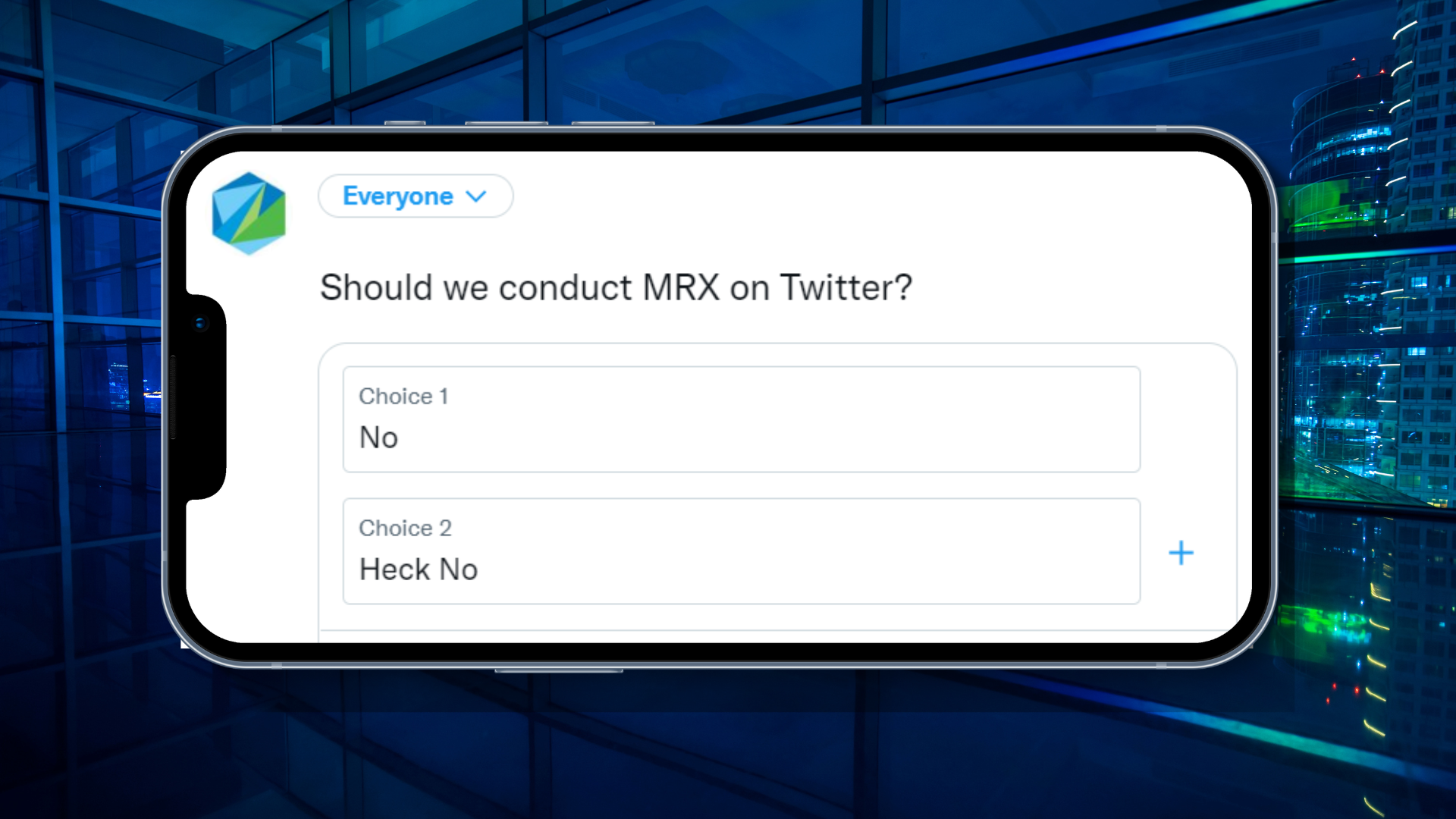
In-Store Warrior or From-The-Couch Customer? A Look at Black Friday Shopping Plans
November 22, 2022
The “People” Have Spoken: Why Relying on Twitter Polls is Just Bad Research
December 5, 2022I am sick of “Prodents” stealing the cheese…
I recently participated in a conversation with Katrina Noelle & Casey Bernard of KNow Research on Intellicast where we discussed one of the major concerns compromising market research quality: Professional Respondents. It was interesting to hear from the team at KNow about in-person research they’ve conducted among people that are creating multiple personas – not unlike the fake profiles we see in the quant space – that allow respondents to game the system to participate in as much research as they can because it is a seemingly easy way to earn additional income.
I expressed on the podcast that I do not love the term Professional Respondents. Who exactly are professional respondents anyway?
This rabbit hole was well-traveled as I pondered and discussed the terminology with colleagues. I decided that, moving forward, I am going refer to the hyperactive panelists, cheaters, imposter responders, or posers as “prodents.” Pro(fessional) (respon)dents. This feels more appropriate for defining pests that cause damage and spread disease. (BTW – I need @ credit when you use #prodents after reading this blog.)
All joking aside, we are facing a serious disease rampantly spreading across the data collection ecosystem. As with any widespread illness, it is vital that as a community we identify potential causes, communicate possible effective treatments, and collaborate on long-term cures and methods for eradication.
I am hopeful that as an industry we will continue to further define trends and tactics that compromise quality so we can develop more widely adopted standards for identifying and mitigating the risks of unchecked fraud and unhealthy panel sample resources. Katrina Noelle said it well: “Awareness, vigilance, time, and energy are needed from all of us in the industry to ensure quality data and therefore quality insights.”
I support the efforts of the Insights Association’s Data Integrity Initiative and appreciate the distribution of the DII Toolkit – centralized industry information to educate and empower both researchers and end-users to be more aware and better equipped to address data quality issues.
The EMI team is constantly thinking about how we can achieve the highest quality data and further the industry in terms of mitigating fraud and risk. As our Vice President of Network Partners and Quality, this issue is one that I am especially passionate about. If you want to join the conversation, I would love to hear from you. Reach out to me on LinkedIn, shoot me an email, or chat with us on the Intellicast podcast.




